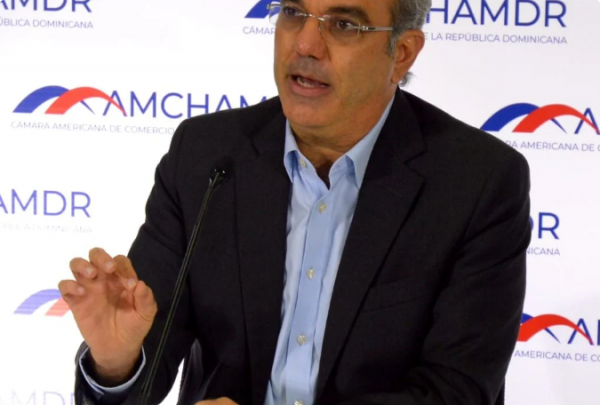
The presidential candidate of the Modern Revolutionary Party (PRM) said he expects to dedicate the first 100 days of a possible first government of his to reach an agreement for comprehensive fiscal reform that stimulates investment, to efforts to restore trade, to establish an efficient public administration and to the implementing public policies to eliminate corruption and impunity.
Speaking for the American Chamber of Commerce of the Dominican Republic (Amchamdr) zoom conference, Abinader said he will focus on attracting foreign direct investment, as it is the engine of development. He said at the same time he will endeavor to control the coronavirus and balance it with economic activation, job creation and changes in the country’s development model. “Controlling the spread of the virus is a prerequisite before moving on to organizing and implementing a comprehensive stimulus plan for recovery and reviving economic growth,” he summarized.
“Our government, perhaps like no other in any previous period, will have the responsibility of providing epidemiological security, while keeping all productive activities functioning. To that end, we will do what this administration should have done during the present crisis, execute a massive program to detect, isolate, track and treat those infected and their contacts to control the spread of Covid-19″, Abinader told Amcham’s virtual audience.
He spoke of improving the quality of government spending and strengthening Congress’s government spending controls capacity and that of the Chamber of Accounts.
He suggested that economic theory and practical experience from previous crises indicate that a strong component of public spending through subsidies, cash transfers, soft loans and tax benefits for individuals and businesses is the right formula for a return to growth.
“If we want to generate a virtuous circle of production and consumption, it is essential to provide companies with financial facilities to invest and give back the purchasing power to people and encourage production. In the end it is the aggregate demand that determines employment and product in the short term,” he said.
Abinader said the experts he has consulted agree that the problem with the DR’s trade balance is not a lack of access to markets, but a lack of systemic competitiveness to develop an export culture. This means that our institutions function poorly, the provision of public services is insufficient and of poor quality, the justice system does not operate in the best way and monopolistic market structures predominate, distorting the price system.
“We will adopt measures to increase the supply of industrial products with an export vocation, reviewing and adapting the laws that currently regulate the industrial sector (national and free zones) with the aim of promoting productivity, competitiveness, employment, exports and the distribution of economic activities throughout the national territory”.
“We will develop trade intelligence mechanisms to identify potential market niches; we will promote trade missions to the most important markets of trade partners, as well as to potential markets not currently exploited; and we will establish a continuous program of training and technical assistance to develop the human capital of companies in the industrial sector”.
28 May 2020

